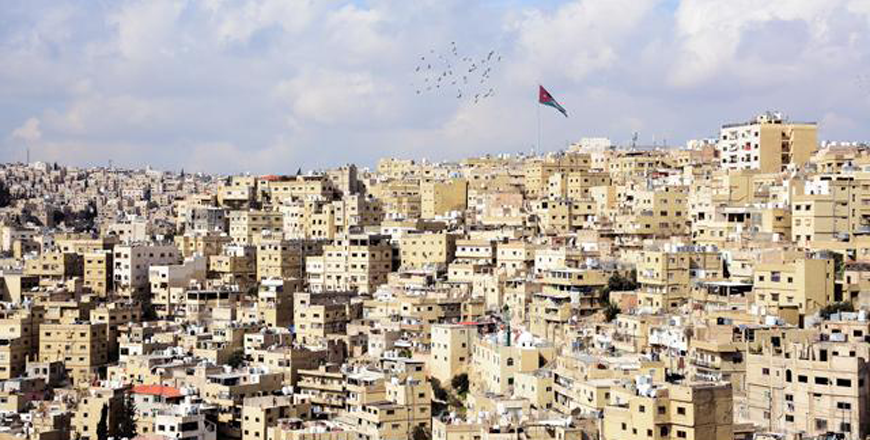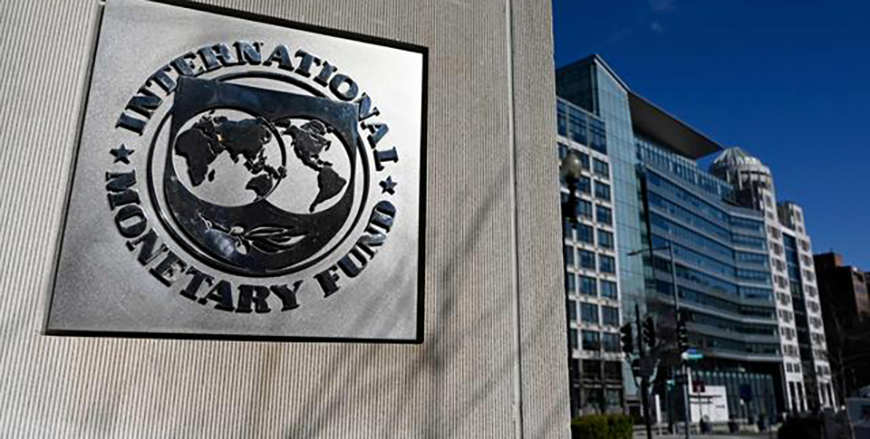You are here
IMF Executive Board concludes 5th review under Jordan’s EFF
By JT - Dec 22,2022 - Last updated at Dec 22,2022

Continued post-COVID recovery and positive spillovers from the region led to stronger growth in 2022-23, however, the medium-term outlook is weighed down by elevated commodity prices, tightening financial conditions, and a slowing global economy, according to the IMF (File photo)
AMMAN — The Executive Board of the International Monetary Fund (IMF) on Wednesday completed the fifth review of Jordan’s programme supported by the Extended Fund Facility (EFF).
The completion of the review will make the equivalent of SDR 257.325 million (about $343 million) immediately available. This brings total IMF disbursements to Jordan since the start of 2020 to SDR 1,276.247 million (about $1.699 billion) including a purchase of SDR 291.55 million (about $407 million) in May 2020 under the Rapid Financing Instrument, according to an IMF statement.
Jordan’s four-year extended arrangement amounting to the equivalent of SDR 926.37 million (about $1.293 billion, equivalent to 270 per cent of Jordan’s quota in the IMF), was approved by the IMF’s Board on March 25, 2020 and was augmented on June 30, 2021 to the equivalent of SDR 1070.47 (about $1.494 billion, equivalent to 312 per cent of Jordan’s quota in the IMF).
Continued post-COVID recovery and positive spillovers from the region led to stronger growth in 2022-23, however, the medium-term outlook is weighed down by elevated commodity prices, tightening financial conditions, and a slowing global economy.
GDP growth is projected to remain at around 2.7 per cent in 2022-23, up from 2.4 per cent in the fourth review. Inflation, projected at 4.4 per cent for 2022, has increased but remains moderate and should ease in the period ahead.
The banking system remains resilient to shocks. Financial challenges in the electricity sector are exacerbating fiscal pressures as subsidies have increased considerably on the back of high international commodity prices, the statement said.
Unemployment for Jordanians remained elevated at 22.6 per cent in 2022, with youth unemployment showing some decline but remaining high at nearly 50 per cent.
The IMF’s financial support will help Jordan navigate these challenges and catalyse support from other development partners, which will be critical to enable Jordan to promote an inclusive recovery and build forward better, while continuing to host 1.3 million refugees, the statement said.
Following the Executive Board discussion, Kenji Okamura, Deputy Managing Director and Acting Chair, made the following statement: “Jordan’s broad-based economic recovery continues despite a challenging external environment, thanks to the authorities’ effective policy response. Going forward, policies should remain focused on maintaining macroeconomic stability, protecting the vulnerable segments, and advancing reforms to boost employment, growth, and competitiveness.
“Fiscal performance has been strong, on the back of sustained legislative and administrative reforms to reduce tax evasion and avoidance. The authorities have also replaced untargeted and fiscally unaffordable fuel subsidies with cash transfers to protect the most vulnerable segments. The planned gradual fiscal consolidation, along with efforts to improve public investment management and monitoring of fiscal risks, will continue to support debt sustainability.
“Monetary policy is appropriately anchored in safeguarding the peg. The financial sector remains healthy, and the Central Bank of Jordan continues to closely monitor banks’ asset quality. Subsidised lending schemes should become more targeted and be gradually phased out as the recovery entrenches. To further enhance the AML/CFT regime, the authorities are committed to implementing the remaining items in the action plan to exit the FATF’s watch list.
“Electricity and water sector reforms are critical for preserving the sustainability of public finances. Timely implementation of the action plan prepared in consultation with development partners is key to credibly reduce NEPCO’s deficits. Strong policy efforts are also needed to address water scarcity and the persistent losses and arrears of the water sector. To this end, the recent adoption of the financial sustainability roadmap for the water sector is welcome.
“Achieving strong and inclusive growth rests on steady progress on structural reforms to support female labour force participation, enhance youth employment and labour market flexibility, promote competition, reduce the costs of doing business, and strengthen governance and transparency. In this regard, advancing legislation to support female labour force participation and tackling impediments to competition are critical. Stepped up and timely donor support is crucial to help Jordan navigate the adverse exogenous shocks from elevated commodity prices and tightening global financial conditions, while maintaining social stability and reform momentum. Such support will also help ease the country’s burden of hosting 1.3 million Syrian refugees.”
Related Articles
AMMAN — The Executive Board of the International Monetary Fund (IMF) on Monday completed the third review of Jordan’s programme supported by
AMMAN — The Executive Board of the International Monetary Fund (IMF) completed the sixth review of Jordan’s programme supported by the Exten
AMMAN — The Executive Board of the International Monetary Fund (IMF) on Tuesday completed the first review of Jordan’s performance under the



















